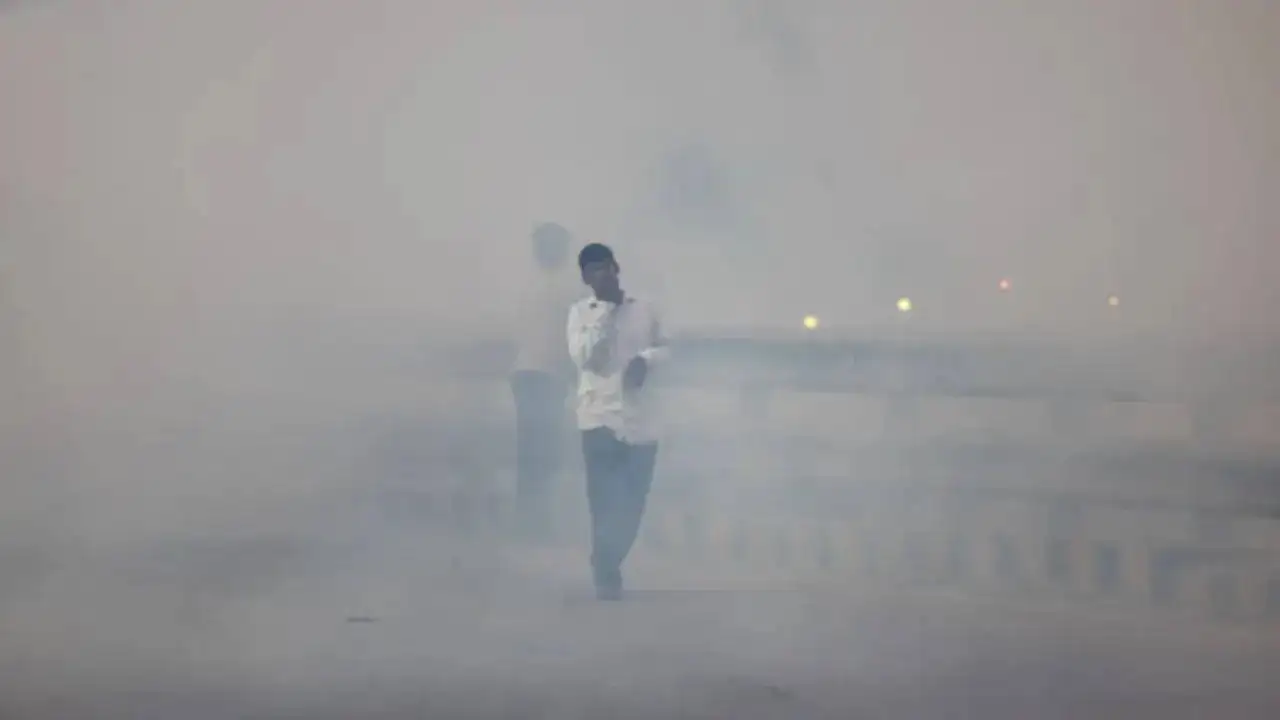Copyright timesnownews

More than a week after Diwali, air pollution levels continue to rise sharply, with doctors in Delhi warning that poor air quality is severely affecting vital organs – especially among the vulnerable groups. Experts say there has been a 15 per cent surge in respiratory cases, with the elderly and children the most affected. Symptoms of breathing and lung-related issues include throat irritation, fatigue, and headaches, caused by high levels of carbon monoxide and other toxic, volatile compounds in the air. “These pollutants can lead to long-term health issues such as cancer and reduced cardiac function. Respiratory physicians report a 15 per cent increase in patient numbers during these months, with longer recovery times,” said Dr Rajesh Chawla, Pulmonology and Critical Care Specialist, Apollo Hospital, quoted by the Economic Times. CPCB data shows harrowing figures An analysis of Central Pollution Control Board data has revealed that in the last week, PM2.5 concentrations surged to 488 micrograms per cubic metre, the highest in five years and more than three times the pre-festival level of 156.6 micrograms per cubic metre. The survey, based on over 44,000 responses from residents across Delhi-NCR, which includes Gurugram, Noida, Faridabad, and Ghaziabad, has found that 42 per cent of the households reported that one or more members were suffering from sore throat or cough, while 25 per cent said family members had burning eyes, headaches, or difficulty sleeping. About 17 per cent of respondents reported breathing difficulties or aggravated asthma. Experts say despite a more than 75 per cent reduction in stubble burning events in Punjab and Haryana this year due to floods and delayed harvests, Delhi and adjoining areas' air quality has remained poor with the Air Quality Index (AQI) crossing 400 in several areas -- about 24 times higher than the World Health Organization's recommended level for PM2.5 exposure. How to take care of your health?Doctors suggest that, as the situation does not seem to improve in the near future, it is advisable to take a few measures, which include: Wear masks at all times whenever you go out of the house If you exercise and work out, make sure to do it either indoors or venture out only when the pollution levels are down. Stop going for morning walks if you feel uneasy. When travelling, make sure to shut the car windows to avoid being affected by traffic Reduce outdoor activities for kids to mitigate the severe health impacts of prolonged exposure to pollution If possible, install HEPA-13 filtration air purifiers at home to help those with comorbidities Side effects of pollution go beyond breathlessness According to doctors, it is not just your lungs and breathing that get affected due to pollution. The pollution wave and toxic air are especially dangerous for those with heart, kidney, liver, and other organ-related illnesses, and many are struggling to cope with regular medications. The situation poses serious health risks as such patients experience worsening of their symptoms and, in severe cases, may require hospitalisation.



